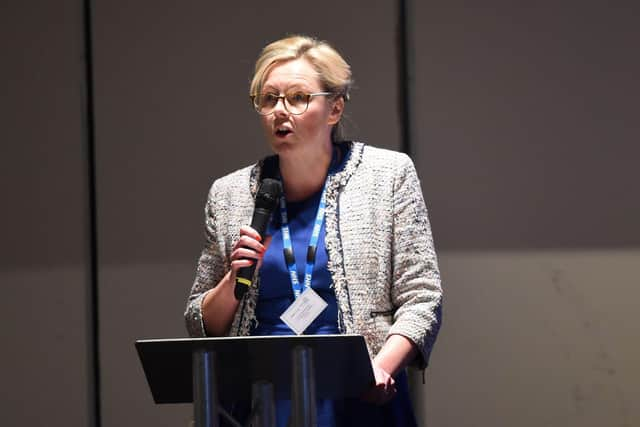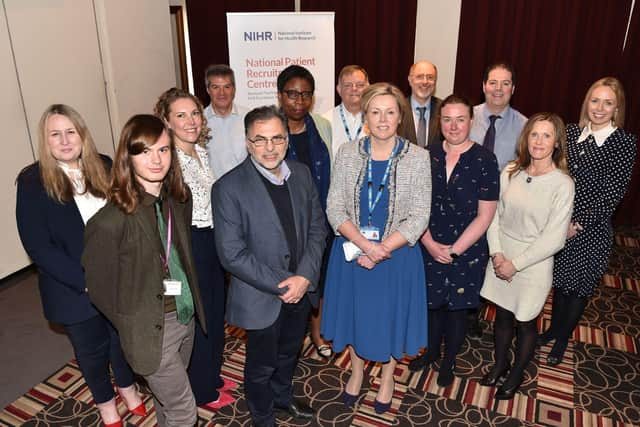Blackpool Victoria Hospital ‘pushing the boundaries’ in efforts to tackle town’s low life expectancy
and live on Freeview channel 276
Hundreds of Fylde coast people who volunteered for medical trials contributing to the successful treatment of more than 800 patients were celebrated at a conference at the Village Hotel, East Park Drive, this month.
Advertisement
Hide AdAdvertisement
Hide AdThe event, hosted by the Blackpool NIHR Patient Recruitment Centre, which is based in the hospital, heard how the research projects being carried out are contributing to the mission to level up healthcare in the area.


Dr Gavin Galasko, clinical director of the PRC, said: “How do we improve things? How do we get better? We do that through research. Research makes a difference. In hospitals that do a lot of research patients live longer, survive better, they do better.
“This year alone we have had six studies that have either been a first in the UK, first in Europe or potentially the first in the world.”
The centre’s achievements include administering the world’s first Novavax Covid-19 vaccine after clinical trials began in autumn 2020. It also became the first UK site to open three cancer studies offering early access to new treatments in breast cancer, and saw the first ever UK patient recruited to a Multiple Myeloma (bone marrow cancer) study, undertaken in Blackpool.
Advertisement
Hide AdAdvertisement
Hide AdHowever, Blackpool remains a hotspot of health inequality. The resort has one of the lowest male and female life expectancies in England, with figures showing more than a third of people will die before the age of 75. Cardiovascular disease and cancer rates are high, as is substance misuse among young people.


Dr Angela Parker, PRC manager and manager for research, development and innovation at Blackpool Teaching Hospitals NHS Foundation Trust, said: “We have recruited over 230 study participants through the PRC in this year alone, across a broad portfolio of studies.
“By attracting more commercial research to the UK, we will also increase opportunities for our patients to access cutting edge treatment and therapies that are not yet widely available through the NHS.”